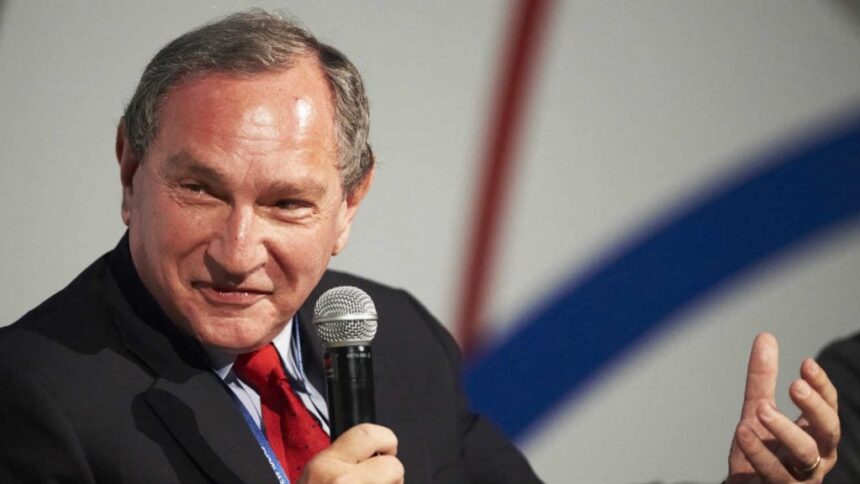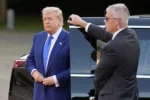Renowned geopolitical analyst George Friedman, founder of Stratfor and Geopolitical Futures, shared his vision of a transforming world at the Pupin Initiative Forum in Belgrade. In an interview with RTS, Friedman presented a penetrating, and frankly unsettling, view of a future where, in his words, the U.S. “no longer wants to be the world’s guardian.”
Friedman dismisses escalating speculation about a potential World War III, emphasizing that the current global landscape differs significantly from the 20th century. Modern technology allows for long-distance warfare without large troop movements, yet with greater destructive power. However, this very destructiveness, symbolized by nuclear weapons, is precisely why a major conflict is unlikely. Nuclear weapons, Friedman argues, are not just tools of destruction but also tools of deterrence, as leaders in a nuclear conflict would risk their own families’ lives. “A leader who starts a nuclear war – dies first,” Friedman stresses.
Ukraine: A War Revealing Weakness and the End of an Era
Friedman believes Russia’s attack on Ukraine reveals significant weaknesses in the Russian military and symbolizes the end of the myth of the invincible Red Army, marking what he calls the end of the Cold War. He notes that after three years, Russia has failed to achieve goals it planned for a few months, asserting that “this is not the Soviet Union” and a more capable army would have already conquered the entire country.
While acknowledging that Russia is fighting not only Ukraine but also the powers behind it—primarily the U.S., which provides weapons, intelligence, and training—Friedman maintains that Russia’s failure demonstrates a “model of warfare that no longer exists.”
US Retreats from Global Guarantor Role; Internal Transformation
Friedman contends that the United States is withdrawing from its role as the world’s security guarantor. This doesn’t signify a loss of power; the U.S. remains an unconquerable and self-sufficient fortress. After 80 years of continuous global engagement, the U.S., according to Friedman, is weary. The decades-long guarantee of Europe’s security is now in question. Friedman emphasizes that Europe must learn to defend itself, as American children should not die for others’ borders.
The U.S. transformation is also internal. Friedman views Donald Trump’s role as a result of a societal need to change the system—an expression of a collective mood. “We are not a nation afraid to change the system,” Friedman says, adding that American history is a history of innovation and reshaping.
China: Partner, Rival, or Both?
China’s economic strength and its strategic pivot towards military objectives pose a challenge for the U.S. Friedman claims that China is currently in a serious crisis with deep social and economic difficulties while attempting to maintain a privileged trade relationship with the U.S. He finds it illogical for a country to be economically dependent on another while openly preparing for military conflict. “You cannot threaten us with war and demand free access to the market,” Friedman states. He argues that China has no alternative to the American market, and attempts to rely on internal consumption or Africa are desperate and insufficient.
On whether AI could replace him as an analyst, Friedman firmly rejects the possibility. He believes AI is powerful for data processing but lacks fear, emotion, context, or experience—all of which, according to him, are “the essence of true intelligence.” “Intelligence is not just reason. It’s when you talk to your spouse, write a book, worry. AI cannot do that,” he concludes.
Serbia and Eastern Europe: A Zone of Creative Development
Friedman offers encouraging messages for Serbia and the entire Eastern European region. He highlights that stability, a key value in Western Europe, is not a natural need for the East. These countries should develop, grow, and “explode” in knowledge and innovation. He particularly praises technical literacy and entrepreneurial spirit in Serbia, advising the building of relationships with both West and East, but without entanglement in wars. “Stay on the cutting edge of technology, educate the young, and do not accept ‘stability’ as a model of development,” he concludes.
Friedman asserts that the world created after World War II no longer exists. The U.S. is redefining its role, and the rest of the world must decide: whether to take responsibility for its own security, development, and sovereignty, or remain dependent on powers that no longer wish to protect them unconditionally.







